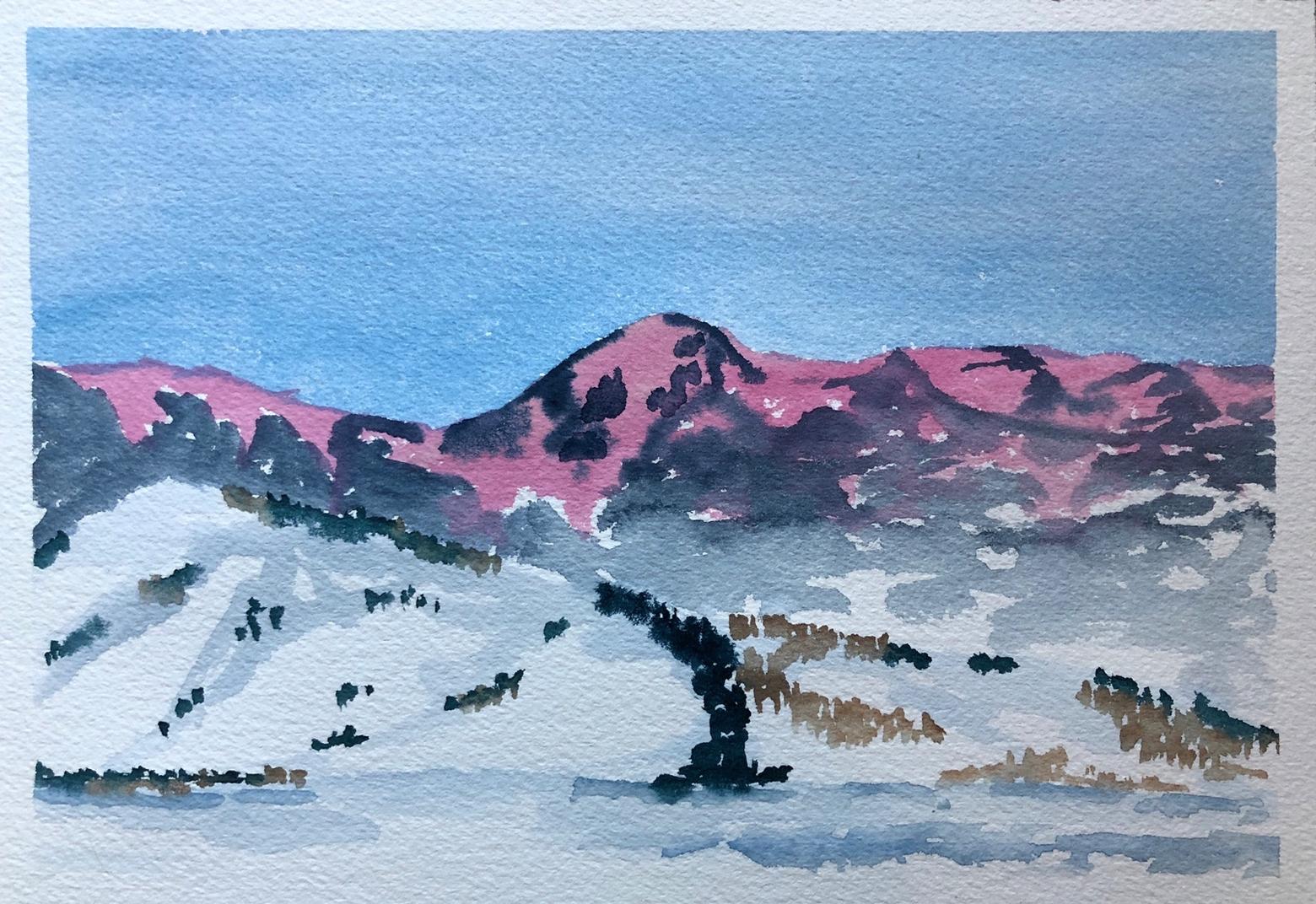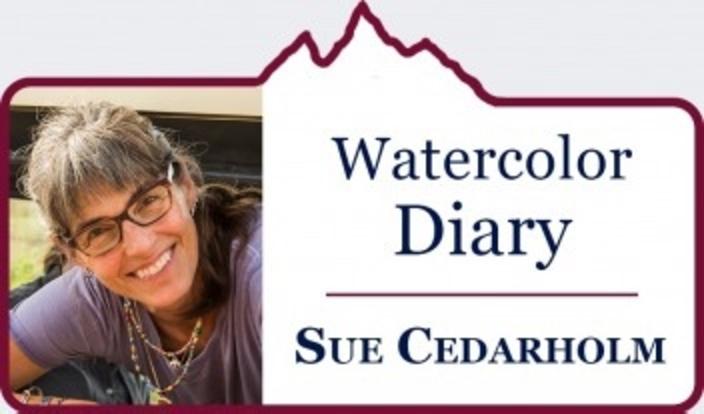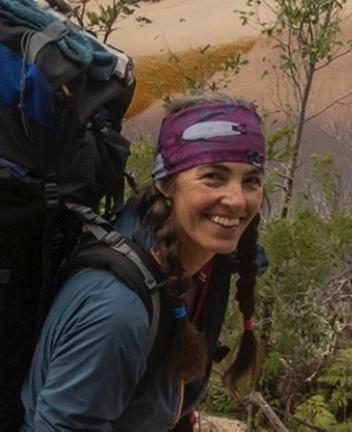Back to StoriesSunrise At Glory In A Time Of Climate Change
December 12, 2017
Sunrise At Glory In A Time Of Climate ChangeSue Cedarholm's Watercolor Features Jackson Hole's Most Beloved Local Winter Landmark
Climbing Glory after the first big dumps and skiing the
wondrous powder, there is a mystique.
It’s part of the initiation that locals in Jackson Hole go through.
The curve of 10,032-foot Mount Glory and her namesake bowl hanging
high above the town of Wilson, Wyoming along Teton Pass, are what we idyll over
in winter. There, where runs are not commercialized, cultivated and
forest-girded like a vertical golf course fairway, heading to Glory is one of
the few traditions that binds.
My first winter in Jackson was 1980 – 81 and it accompanied
a severe drought. Teton Village, home of Jackson Hole Mountain Resort, had to close
early due to lack of snow. Jobs were hard to find with the lack of tourists.
Jackson was not easy to reach in those days—no nonstop flights from the major
cities.
My posse of friends all wanted to learn to telemark. I was a
transplanted Coloradan used to groomed
conditions. We were up on Teton Pass in
our leather boots and wooden cross-country skis, trying to make them turn but
those skis were made to go straight.
We spent hours hiking up, crashing and falling on the way
down yet we were determined and finally got the hang of it. All of us were good
alpine skiers at the ski area; Teton Pass and Glory put us in our place.
As part of the working class, none of us could
afford an annual pass at the Village so we skied the backcountry. Up there, you
earn your turns. There is nothing like a quiet early morning, hiking up Glory,
your lungs pulling in the cold air, and heart beating hard with the exertion.
Before you jump in, you stand on the summit with a feeling
of accomplishment. Clipping on three-pin bindings and doing those wide sweeping
tele turns in the deep, sometimes
very deep powder, face shots are had all the way down making the trek up worth
it.
Now the skiers ascending Glory have plastic boots, high-tech
skis and bindings that you can clip your heel in for the descent. You don’t see
many skiers telemarking anymore. The Pass is a busy place. On many mornings
when people have freshie fetishes on the brain, you have to wait in line to
park. Still, as the line thins out and you have followed boot path to the
summit, you still get that feeling of exhilaration—the kind that is hard to
translate in a painting.
In the Greater Yellowstone Ecosystem we are surrounded by unbridled
recreation and we are spoiled. These lands are free, in the sense we don’t have
to pay for a daily ticket to go skiing. Glory is part of the Bridger-Teton National
Forest. Having wild places and keeping them that way is our responsibility to
the next generation.
Don’t get me wrong, I’m a big fan of making skiing at the resort, riding chairlifts and getting a
lot of turns in. Jackson Hole Mountain Resort, few realize, is also located on our public land as a leaseholder with Bridger-Teton. Multi-use has its
setting and context but most places cannot do it all—having wildlife and being
a human playground. Once you lose the former we cannot get it back.
This year, so unlike the dumpages of early winters past,
we’ve been waiting for the reliable dumpages to come.
These clear, cold mornings make for gorgeous sunrises, but
we want more snow. We had feets’ worth early in the season and there is still a
good snowpack in the higher mountains.
But this December, the valley floor is still brown—yes,
brown— which is worrisome for the ski resorts and a backcountry that needs the
precip in order to escape the flame in 2018.
"Keep close to Nature’s heart…break away once in awhile and climb a mountain or spend a week in the woods. Wash your spirit clean.” —John Muir
Is this a sign of the future? Today, snowmaking machines are
roaring just getting enough snow on the slopes so you can ski to the base.
Fires are raging in California and it is snowing in Atlanta and in Mexico. Change
is upon us.
To quote John Muir, “Keep close to Nature’s heart…break away
once in awhile and climb a mountain or spend a week in the woods. Wash your
spirit clean.”
Those of us lucky enough to have easy access to wildness
know this and that is why we choose to live here. At what point do the trends of weather morph
into a statement of climate?




